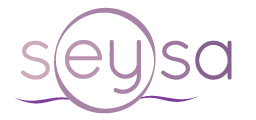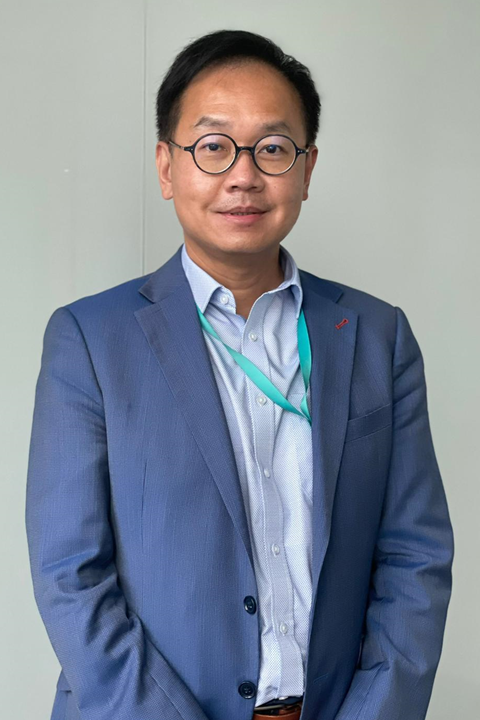Recipient of Sir Edward Youde Memorial Scholarships for Undergraduate Students in 1991/92
尤德爵士紀念基金本科生獎學金1991/92年得獎者
Hong Kong’s medical standards are second to none in the world, but it is facing major challenges such as an aging population and rising medical costs. The recipient of Sir Edward Youde Memorial Scholarship for Undergraduate Students in 1991/92, Chief Operating Officer of CUHK Medical Centre, Prof. Justin Wu, sees the shortcomings of the healthcare system and strives to make a change. He has been working towards the goal in different positions.
Prof. Wu is a Gastroenterologist at the Chinese University of Hong Kong (CUHK). Throughout the years, the SARS pandemic has always been his most memorable moment. In the face of sudden epidemics, he took the risk of infection every day, but he never flinched. He said that the experience made him realize that the responsibility of doctors is not only to save lives but also to shoulder the expectations of the public.
From years of experience, he found the medical training overemphasized professional aspects in the past, without much focus on widening students’ horizons. It motivated him to rejoin the Faculty of Medicine at CUHK and initiate the Global Physician-Leadership Stream (GPS), aiming to train up a young generation of medical leaders. Although he agrees that teaching practical skills is very important, he emphasized that the importance of nourishing their global perspectives for medical students. With the rapid development of biotechnology and the increasing frequency of cross-industry cooperation in the medical industry, he believes that Hong Kong medical leaders need to be generalists: not only well-equipped with medical skills, but also with flexible and up-to-date ideas and insights.
Prof. Wu’s pursuit in improving Hong Kong’s medical development is not limited to training better doctors, but also the imbalanced healthcare system between the public and private sector. Therefore, he later left the Faculty of Medicine of CUHK to take up an administrative role in the new CUHK Medical Centre (CUHKMC). The public medical system has long been on the brink of collapse, with high efficiency but at the expense of quality. On the other hand, although the quality of private medical institutions is high, the costly fees have led to low demand for services. He pointed out that CUHKMC has been working hard to break through the existing framework. One of the missions of CUHKMC is to become the bridge between the public and private sectors and provide more transparent pricing. It offers another option for patients who could not afford private healthcare services to relieve the burden of public hospitals. At the same time, the hospital has also increased the time for consultation and communication to improve the quality of medical care. He pointed out that if the business model of the CUHKMC is successful, it could serve as a blueprint for other private hospitals and eventually bring Hong Kong medical care out of the present predicament. In addition, Prof Wu believes that innovation in public hospitals is hindered by the heavy workload of medical staff, bureaucracy, and system rigidity of the Hospital Authority. CUHKMC is committed to promoting medical innovation. Thanks to the support from the government and the Faculty of Medicine of CUHK, new medical technologies, and innovative guidelines can now be carried out at CUHKMC. Meanwhile, some rare or complicated cases would also be admitted there to increase the exposure of doctors and medical students.
Another field propelled by Prof. Wu is Integrative Medicine. Embracing the unique edge of having both Western and Chinese Medicine undergraduate degree programmes, along with the superior medical quality among the globe, Hong Kong possesses the full potential for connecting East and West. The inadequate understanding and doubts about Chinese Medicine treatments among doctors, regrettably, have brought the development of Integrative Medicine to a standstill. Yet, Prof. Wu observed that patients who suffer from severe conditions also seek help from Chinese Medicine practitioners. Instead of denying the legitimacy of Chinese medicine, he encourages the development of integrative treatments with the collaboration of both approaches, such as assessing Chinese Medicine’s effectiveness by scientific research. One example of Integrative Medicine in CUHK Medical Centre is cancer treatment, where Chinese Medicine is offered as an option for cancer patients.
Regarding the experience with SEYMF, he still recalls one scholarship interview asked about his recent good reads. In response to that, Prof. Wu mentioned some financial magazines, through which he understood how other fields that he doesn’t familiar with operated. He believes the scholarships are not only for academically gifted students, but it serves as an encouragement for students to become social leaders. Similarly, he was able to encourage medical students’ participation in voluntary services back in the days, serving as the President of the Medical Society at the university.
In the past two decades, he has always been a pioneer in teaching, administration, and research. His final message to all Hong Kong people is to appreciate our advantages, affirm ourselves, and remain confident to rise to future challenges.
香港的醫療水平在全球首屈一指,但正面對人口老化、醫療成本上升等重大挑戰。尤德爵士紀念基金本科生獎學金1991/92年得獎者──香港中文大學醫院營運總監胡志遠教授一直透過在不同的崗位下發揮影響力,應對本港醫療系統的弊病。
胡教授於香港中文大學修讀醫科,並成為腸胃及肝臟科醫生。在他行醫多年的經歷中,沙士一疫仍是記憶猶新。當年他是首批進入隔離病房工作的醫護人員,面對突如其來的疫症,每天承擔著受感染的風險,他從未退縮。那一段難忘可貴的經歷讓他發現醫生的責任不但是醫治好病人,更肩負著社會大眾的期望
多年的經驗使他觀察到醫生的訓練側重於專業培訓,導致醫學生往往視野不夠開闊。這促使他在中文大學醫學院開設「環球醫學領袖專修組別」課程,為香港醫療業注入新血。他雖然同意傳授實戰經驗十分重要,但亦強調培養國際視野的重要性。現時生物科技的發展一日千里,醫療行業需要更多跨行業的合作,使他相信香港的醫學領袖需要是一名通才:不僅具備高明的醫術,更要有靈活和與時並進的想法與見識。
在教學以外,胡教授亦希望解決香港醫療系統中公私型醫療失衡的問題。為此,他毅然離開中大醫學院,轉而參與中文大學醫院的管理工作。長久以來公營醫療體系遠超負荷,服務效率雖高,質素卻強差人意;另一邊廂私營醫療機構質素雖好,但收費高昂導致服務需求低。他指出,醫院一直努力突破現有的框框。現時醫院推出具透明度的收費,讓本來負擔不起私營醫療的病人可以到中大醫院接受治療。與此同時,醫院亦增加問診的時間,從而提高醫療質素。他指出,若果中大醫院的營運模式可行,可望作為其他私家醫院的藍本,達至平衡公私營醫療服務需求的目標。此外,醫院管理局經常被人詬病作風官僚和制度僵化,胡教授認為公立醫院工作量過多,醫管局作風官僚和制度僵化,使醫療創新難以推行。為此中大醫院致力推動醫療的創新,在政府和醫學院的支持下,讓一些難以在公營體系內發展的技術和政策可以落戶中大醫院,醫院亦會接收一些較複雜和罕見的個案,使醫學生及駐院醫生有增長醫學知識的機會。
除此以外,胡教授一直致力推動中西醫結合的治療。香港的大專院校是世界少數同時擁有中醫和西醫學位的地方,超卓的醫療質素亦使香港有潛力進一步發展中西醫結合治療。他指出,傳統西醫的理念只會進行科學為本的療法,中西醫之間長期缺乏互信,使結合治療一直停滯不前。但胡教授觀察到有些重症病人在接受西醫治療的同時亦會諮詢中醫的意見。他認為與其否定中醫,不如合作研究出新的療法。目前,他和團隊正嘗試一種全新的方式,以科學的方法評估中醫藥的功效。現時,中大醫院的腫瘤治療中心亦開放中醫服務,為病人提供更多選擇。
在尤德爵士紀念基金的面試中,其中一條被問及的問題是他最近閱讀的書籍。胡教授指出為了認識其他領域的一些知識,他會閱讀一些財經雜誌。他認為獎學金並非只頒發予學業成績傑出的學生,而是鼓勵學生擔當更多領袖的角色。當時他是醫學院院會的會長,舉辦了不同活動鼓勵同學參與社會服務,幫助不同有需要人士。
在過去20多年,他一直是一名先驅,在教學、行政以及研究的崗位上推動創新。他寄語香港人,要懂得欣賞自己,保持自信,才能在接下來的挑戰中發揮出優勢。

